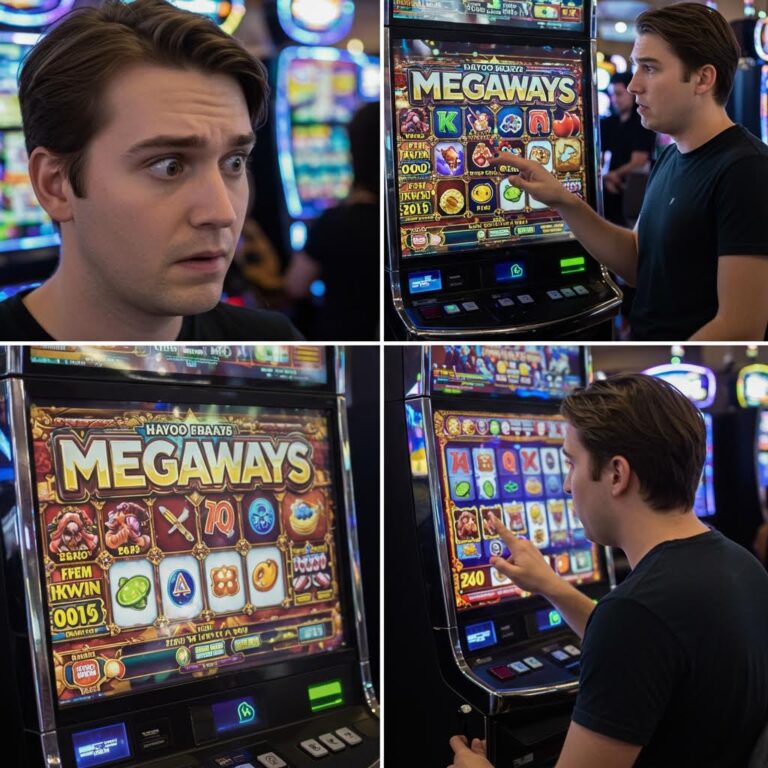How We Get Mixed Up with Chance in Gambling
The Brain Games in Gambling
Our minds see patterns and links fast, which can shake up our thoughts when we bet. These brain games form strong false beliefs that change how we bet, often leading us to lose money at the game table.
Huge Mistakes in Chance
The Gambler’s Mistake
Finding patterns gets tricky with the Gambler’s Mistake – wrong thoughts that what went down before alters what happens next. When folks see many red numbers in roulette, they wrongly guess black will come next, even though each spin stands alone.
The Hot Hand Mistake
The Hot Hand Mistake is yet another big false idea where gamblers feel wins lead to more wins. This brain game tricks players into thinking they’ll keep winning, overlooking the real rules of chance.
True Math vs. Fast Guesses
The real math stays the same: every game’s chance isn’t tied to what was before. The casino’s edge is constant, even if we feel it’s not. All games’ outcomes rest on individual chances, meaning past events don’t shape what’s next.
How to See Past False Chance Ideas
It’s crucial to know these brain traps to make wise choices when gambling. By understanding how our minds form these wrong links, players can think smarter about gambling chances and handle risks correctly.
Gambler’s Mistake, Broken Down
Understanding the Gambler’s Mistake Fully
The Gambler’s Mistake is a basic brain game that tweaks how we view chance and make picks. This mental snag makes folks wrongly think what just occurred impacts what will come next, though each event is separate.
Spotting the Mistake in Gambling
At the casino in games like roulette, the Gambler’s Mistake is clear. Players tend to think that several the same results (like six reds in a row) make another result more likely. This wrong idea leads to risky bets.
The Math Behind It
Each Chance Stands Alone
Every bet stands alone, keeping its odds no matter what came before.
- Black numbers: 47.37% chance
- Red numbers: 47.37% chance
- Green (0/00): 5.26% chance
Avoiding the Mistake
Smart gamblers recognize past outcomes don’t twist future odds in truly random events. This helps them steer clear of:
- Trying to win back losses
- Switching bets for no solid reason
- Betting tactics based on past patterns
Noting the Hot Hand Mistake in Real Play
Grasping the Hot Hand Mistake in Gambling and Picks
The Hot Hand Mistake is a common brain game where folks think wins invite more wins. This goes against the Gambler’s Mistake, yet both drive poor choices in gambling and other chance moments.
How It Shifts Gambling Acts
When gamblers are on a win stretch, they often act in clear ways:
- Upping bets after several wins
- Too much trust in finding patterns
- Bad takes on random chance
True Math vs. What We Think We See
The math remains the same: each game’s odds don’t rely on what was before.
- Jackpot odds on a slot are always the same, regardless of past games
- Past dice throws don’t affect the next ones
- Roulette spins hold the same chance mix
Looking for What We Want in Betting
How We Hunt for What We Want in Betting
Finding what we want is a mighty mind power that really shapes how we bet. This mental spin leads gamblers to search for and recall patterns that match what they think while ignoring what doesn’t.
Usual Ways We Fool Ourselves in Betting
Searching for patterns becomes very risky in betting spaces. In roulette betting strategies, players convince themselves that betting red after three blacks boosts their win chances.
- Recall when they’re right and forget when they’re wrong
- Think wins are skill and losses are mere bad luck
- Focus on short good runs, not long outcomes
Random Acts vs. Patterns We Think Are There
Mind Games in Betting
The brain’s clever pattern-finding skills, useful in much of life, can fail in betting spots.
Players often make big betting plans based on patterns they think exist, to then realize randomness doesn’t follow a set pattern. Knowing this break between what we think we see and true randomness is key to making smart gambling choices.
Common False Ideas in Stats
Common False Ideas in Stats in Gambling
- The Gambler’s Mistake – the false idea that past games change future separate events.
- The Hot Hand Mistake shows another bad belief where players think win runs come from skill, not random chance.
The Mind Play Behind How We Bet
The Mental Work Behind Betting Moves
Mind Slips and Sensing Control
Mind slips shape how we bet through several mental ways. The feeling of being in control is a big drive, pushing bettors to start certain acts and plans trying to alter random outcomes.
How Friends and Places Push Betting
Group gambling drives bring major act changes through proof from peers and pressure from friends.
Casinos and betting places use clever mind pulls – like designed lights, crafted sounds, and set cheer plans – to create a space that overlooks careful thinking.
How to See Past False Chance Beliefs
Grasping Mind Slips in Gambling
Chance misbeliefs and mind slips create lasting gambling illusions that shift choices. The core rule of outcomes standing alone is crucial – each gambling act is separate from past results, no matter the patterns or what we feel.
Methods to Track and Verify
Keeping a detailed gambling record provides real data of true odds versus what we think happens. By working out your real win rate and comparing it to fixed house edge figures, patterns surface that uncover the truth behind so-called “hot runs” and “lucky times” as random event groupings.
